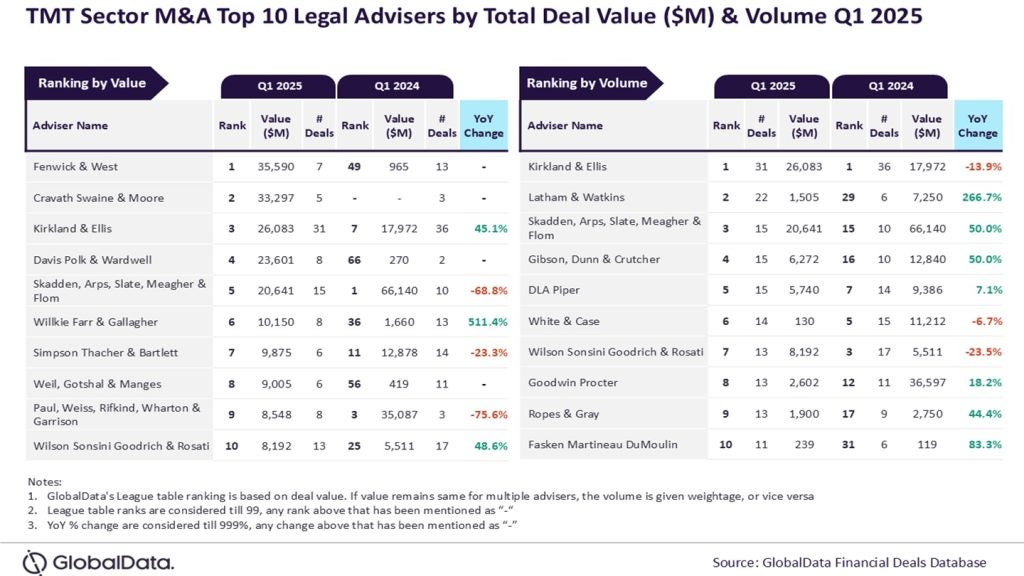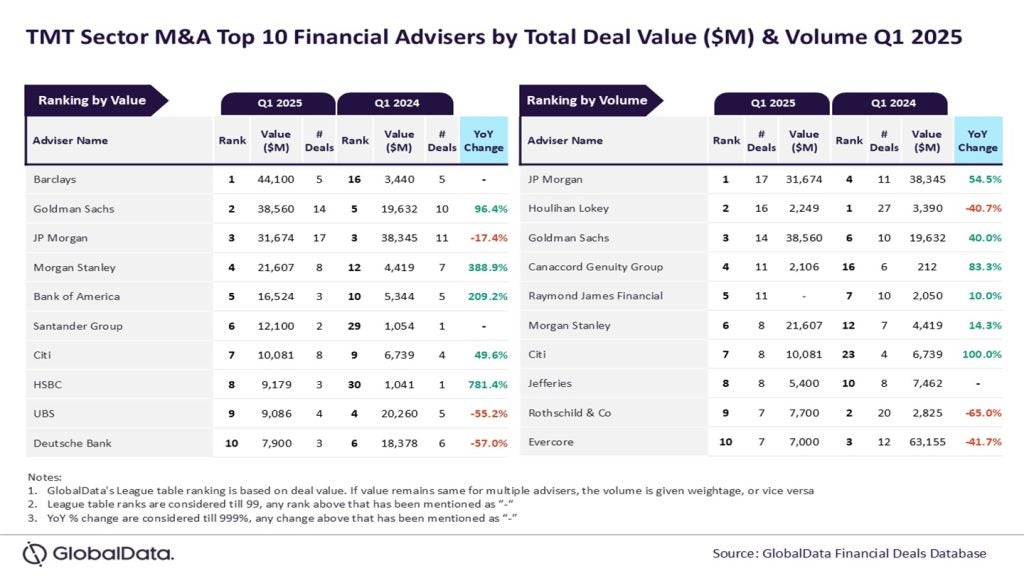The technology industry continues to be a hotbed of patent innovation. Activity is driven by the growth of the market for cloud-enabled synthetic data including the increasing demand for large-scale and diverse datasets, the need for privacy-preserving data generation, and the requirement for cost-effective and scalable data solutions. The growing importance of technologies such as generative models, machine learning algorithms, and cloud computing infrastructure is further driving innovation in the technology industry. These technologies enable the creation of high-quality synthetic data that closely resembles real data, facilitating data-driven innovation while addressing privacy and data protection concerns. In the last three years alone, there have been over 1.5 million patents filed and granted in the technology industry, according to GlobalData’s report on Big data in technology: synthetic data. Buy the report here.
According to GlobalData’s Technology Foresights, which uses over 1.6 million patents to analyze innovation intensity for the technology industry, there are 185+ innovation areas that will shape the future of the industry.
Synthetic data is a key innovation area in big data
Synthetic data refers to data that is generated artificially through computer programs or algorithms. Although not real, it serves the purpose of simulating real-world scenarios and situations for analysis and testing. Synthetic data finds application in diverse fields, including machine learning, artificial intelligence, and data visualization, enabling researchers and developers to explore and experiment with data-driven techniques in a controlled environment.
GlobalData’s analysis also uncovers the companies at the forefront of each innovation area and assesses the potential reach and impact of their patenting activity across different applications and geographies. According to GlobalData, there are 1,540+ companies, spanning technology vendors, established technology companies, and up-and-coming start-ups engaged in the development and application of synthetic data.
Key players in synthetic data – a disruptive innovation in the technology industry
‘Application diversity’ measures the number of applications identified for each patent. It broadly splits companies into either ‘niche’ or ‘diversified’ innovators.
‘Geographic reach’ refers to the number of countries each patent is registered in. It reflects the breadth of geographic application intended, ranging from ‘global’ to ‘local’.
Patent volumes related to synthetic data
Source: GlobalData Patent Analytics
International Business Machines (IBM) is the leading patents filer in the field of synthetic data. One of the company’s patents describes a system, method, and computer program for evaluating an analogical pattern. The approach involves using natural language processing (NLP) to identify analogical pattern terms, refining them through deep analysis and semantic analysis to create metadata, generating interpretations of the pattern, and scoring each interpretation to select the best one that surpasses a predetermined threshold, thereby evaluating the analogical pattern.
In terms of geographic reach, People.ai leads the pack, followed by Factual and MondayCom. In terms of application diversity, International Business Machines (IBM) holds the top position, followed by Meta Platforms and Siemens.
Big data innovation in synthetic data has transformed the way data is generated and utilized for various applications. Synthetic data refers to artificially generated data that mimics the characteristics and statistical properties of real-world data. It is used for tasks such as data augmentation, model training, and testing, without compromising the privacy and security of sensitive information.
To further understand the key themes and technologies disrupting the technology industry, access GlobalData’s latest thematic research report on Big Data.
Data Insights
From

The gold standard of business intelligence.
Blending expert knowledge with cutting-edge technology, GlobalData’s unrivalled proprietary data will enable you to decode what’s happening in your market. You can make better informed decisions and gain a future-proof advantage over your competitors.







